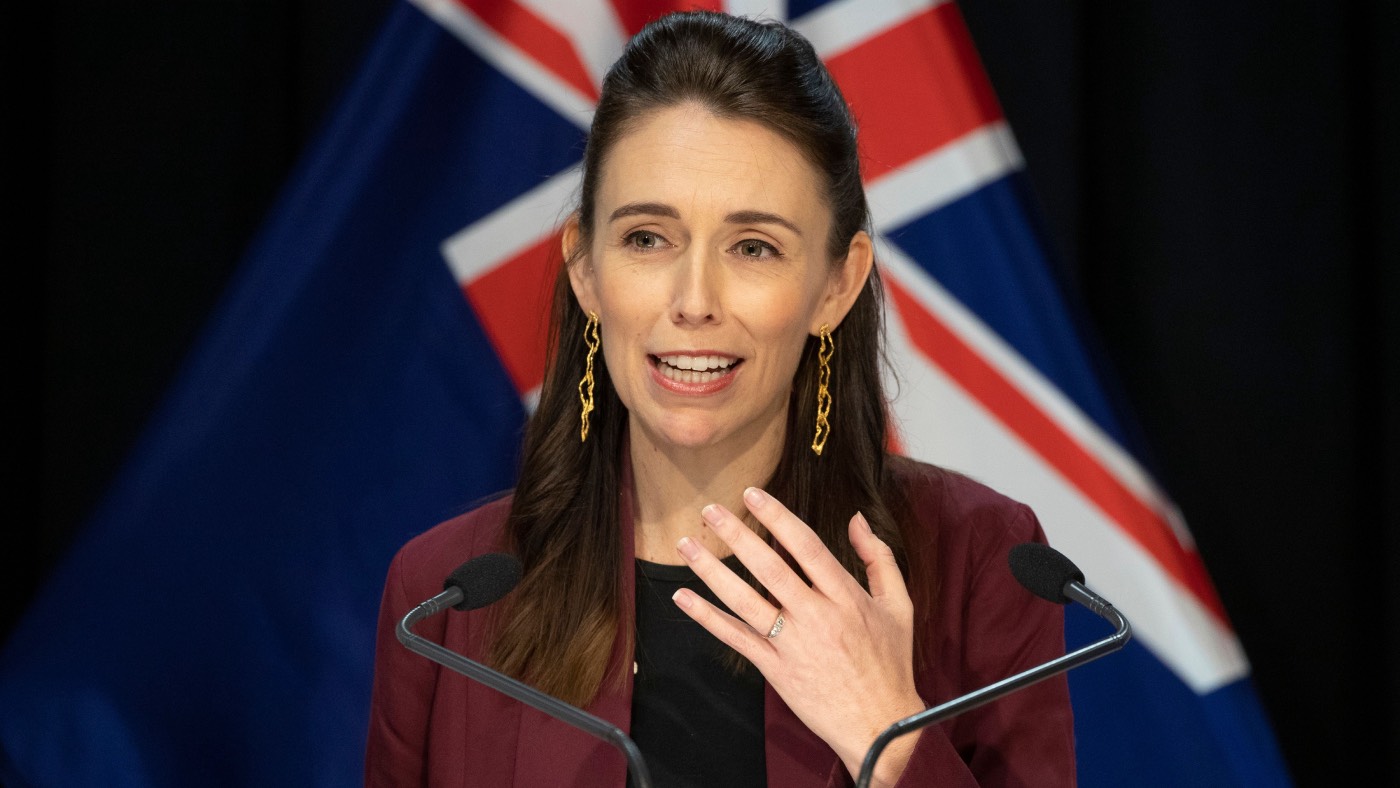How New Zealand eliminated coronavirus
A ‘go hard and go early’ approach and mass testing paid dividends

A free daily email with the biggest news stories of the day – and the best features from TheWeek.com
You are now subscribed
Your newsletter sign-up was successful
New Zealand said yesterday it had “eliminated” the Covid-19 coronavirus as it reported one new case, four “probable cases” and one death.
The country’s Prime Minister Jacinda Ardern said the coronavirus was “currently” eliminated but insisted that the country needed to remain alert and could still expect to continue to see new cases.
Ashley Bloomfield, New Zealand’s Director General of Health, said the low number “does give us confidence that we’ve achieved our goal of elimination, which never meant zero but it does mean we know where our cases are coming from”.
The Week
Escape your echo chamber. Get the facts behind the news, plus analysis from multiple perspectives.

Sign up for The Week's Free Newsletters
From our morning news briefing to a weekly Good News Newsletter, get the best of The Week delivered directly to your inbox.
From our morning news briefing to a weekly Good News Newsletter, get the best of The Week delivered directly to your inbox.
The Independent says New Zealand’s response to Covid-19 has been dubbed the “go hard and go early” approach.
The BBC adds that the country brought in “some of the toughest restrictions in the world on travel and activity early on in the pandemic, when it only had a few dozen cases”.
–––––––––––––––––––––––––––––––For a round-up of the most important stories from around the world - and a concise, refreshing and balanced takeon the week’s news agenda - try The Week magazine. Start your trial subscription today –––––––––––––––––––––––––––––––
On 14 March, when the country had just six cases, Ardern announced that anyone entering the country would need to self isolate for two weeks. These were among the tightest border rules in the world at the time, says CNN.
A free daily email with the biggest news stories of the day – and the best features from TheWeek.com
On 23 March, Ardern put the country under “level 3” lockdown. Non-essential businesses were closed, events and gatherings cancelled and schools closed. These measures were introduced when there were just 102 confirmed cases, and no deaths.
Two days later, Ardern moved New Zealand into the strictest level 4 lockdown, with people told not to leave home except for essential exercise near their homes.
Even as cases were declining on 9 April, she tightened border restrictions so that citizens and permanent residents arriving in New Zealand had to spend two weeks quarantined in an approved facility rather than at home.
Throughout this period, New Zealand has performed widespread testing, with 123,920 carried out to date among a population of just under five million people. Ardern says this is one of the highest testing rates per capita in the world.
The prime minister has been widely credited with clear messaging throughout the crisis, but experts say that New Zealand’s remote location and easily sealable borders were also a major advantage.
-
 Political cartoons for February 15
Political cartoons for February 15Cartoons Sunday's political cartoons include political ventriloquism, Europe in the middle, and more
-
 The broken water companies failing England and Wales
The broken water companies failing England and WalesExplainer With rising bills, deteriorating river health and a lack of investment, regulators face an uphill battle to stabilise the industry
-
 A thrilling foodie city in northern Japan
A thrilling foodie city in northern JapanThe Week Recommends The food scene here is ‘unspoilt’ and ‘fun’
-
 A Nipah virus outbreak in India has brought back Covid-era surveillance
A Nipah virus outbreak in India has brought back Covid-era surveillanceUnder the radar The disease can spread through animals and humans
-
 Covid-19 mRNA vaccines could help fight cancer
Covid-19 mRNA vaccines could help fight cancerUnder the radar They boost the immune system
-
 The new Stratus Covid strain – and why it’s on the rise
The new Stratus Covid strain – and why it’s on the riseThe Explainer ‘No evidence’ new variant is more dangerous or that vaccines won’t work against it, say UK health experts
-
 RFK Jr. vaccine panel advises restricting MMRV shot
RFK Jr. vaccine panel advises restricting MMRV shotSpeed Read The committee voted to restrict access to a childhood vaccine against chickenpox
-
 RFK Jr. scraps Covid shots for pregnant women, kids
RFK Jr. scraps Covid shots for pregnant women, kidsSpeed Read The Health Secretary announced a policy change without informing CDC officials
-
 New FDA chiefs limit Covid-19 shots to elderly, sick
New FDA chiefs limit Covid-19 shots to elderly, sickspeed read The FDA set stricter approval standards for booster shots
-
 RFK Jr.: A new plan for sabotaging vaccines
RFK Jr.: A new plan for sabotaging vaccinesFeature The Health Secretary announced changes to vaccine testing and asks Americans to 'do your own research'
-
 Five years on: How Covid changed everything
Five years on: How Covid changed everythingFeature We seem to have collectively forgotten Covid’s horrors, but they have completely reshaped politics